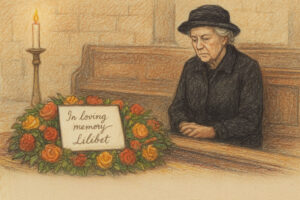Once upon a time there was a man who had several horses. However, for his work he used only one, “Black” for one simple reason: he was the best. He was the best for pulling, the best for plowing, and so on. At one time he thought of using one of the other horses to do the work, but at once he rejected that thought because he said to himself: “they don’t know how to work, they are not as good as Black.”
At first Black was proud of always being the chosen one, but little by little he grew tired of being the only one to work, while the other horses rested quietly and ate alfalfa all day long. One day Black decided to protest. He went to his master and asked, “Why do you always make me work and the others are doing nothing?” “Because you,” said the master, “are the best.” “It’s not fair,” protested Black, “if I am the best, you should treat me better than the other horses, I should have an easier life than them and not a harder one by making me do all the work.” The master did not know what to say. He knew that if he did the work with the other horses it would take him twice as long, because they did not have the strength and skill of Black. He only managed to tell him that thanks to the work he was getting stronger and more beautiful every day, that the other fat and lazy horses were envious of him and his body.
In the spiritual life something similar happens. When the soul does things well, God burdens the soul with more work. This is one of the teachings found in the parables of the golden coins and the talents. When the servants are presented with the money they had earned, the master does not tell them “Very good, now you can rest because you worked well” but rather adds more work. The nobleman says to the one who had given him ten gold coins and earned ten additional gold coins: Well done, good servant! You have been faithful in this very small matter; take charge of ten cities (Lk 19:17) ; in the parable of the talents the master says to his faithful servant: Since you were faithful in small matters, I will give you great responsibilities (Mt 25:21).
The payment in the spiritual life is just like that; rather than reward as well as rest, conveniences and comforts, it is a new request with more demands. However, unlike Black’s master who did it to make his life easier, God does it this way for our good. In the spiritual life, God rewards those He loves by putting more burdens on them for their good, because He loves them and wants to purify them in order to sanctify them.
That is the logic of the Gospel which is contrary to the logic of the world. The world’s reward is to make things easier and lighten the burdens of those who have done things right. God’s reward is to give more responsibilities so that we continue to grow in the spiritual life.





